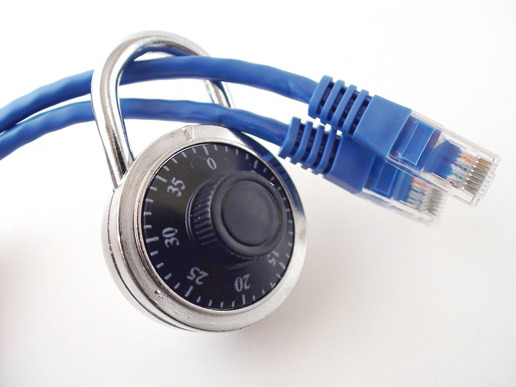- Order Now
1.855.ENDLAYER
Fight off cyber attacks, hacking, phishing & identity theft by securing your network
Crime isn’t so simple any more. The Internet age has ushered in a whole host of new threats for online businesses – and bad guys who profit from security breaches every day. How can you stay safe and protect your company, your data, and your money? Stay tuned for these quick crime-fighting tips that will protect your data and your peace of mind.
 Beef up your infrastructure. Make sure all employees lock their computers whenever they leave their desks – even briefly. Pay attention to who’s entering your workplace and who’s leaving (security cameras help)! And keep your anti-virus and anti-malware software current at all times.
Beef up your infrastructure. Make sure all employees lock their computers whenever they leave their desks – even briefly. Pay attention to who’s entering your workplace and who’s leaving (security cameras help)! And keep your anti-virus and anti-malware software current at all times.
Reserve one computer exclusively for banking – no downloading, social networks or email. (You’ll invite fewer threats that way.) Secure and encrypt all wireless connections in your company, and install a pass-code and security software on any company-issued mobile devices. You’ll want to make sure you can remotely change passwords, unlock and/or wipe these devices, if necessary.
Keep your activities secure. You’ve protected your machines, but you also need to be sure you and your employees are practicing safe working, browsing and downloading habits. Build a strong barrier to keep the hackers away by instituting secure access protocols – for instance, you should require that employees change their passwords every 60 to 90 days. Passwords should be secure, too: long, diverse, and full of numbers and symbols. (Yes, we know this is a pain in the butt.)
If your business uses the Google email platform, add an extra layer of security by enabling two-factor authentication with a code from a mobile app. Now, password cracking software can’t breach your email security.
Also, don’t forget to be careful when storing data in “the cloud.” Cloud services like iCloud and Dropbox can be convenient, but hackers often target them because they’re unencrypted. If your business really needs cloud storage, it’s usually better to find a reputable private vendor or build your own cloud in-house. (It’s nice if you have your own IT department.) For more about cloud safety, read our post here.
Train your staff to be safe. Your first line of defense is an informed, educated staff. If your employees don’t understand or comply with your security policies, your security may be severely compromised.
Talk to your team and make sure they’re on board with your protocol for data flow, email practices and password policies. Tell them how to spot vulnerabilities in the system, and give them the tools they need to fix or report any breaches.
Perhaps most importantly, give them a thorough briefing on email “phishing” (illicit software that’s automatically installed when a user clicks a link in an email from a hacker). Make sure they know how to spot the difference between a trusted email address and a fake. And remind them that they should never download or install anything on the computer unless publisher’s identity is verified. Your team is a key part of your company’s data security, so give them the education and the tools they need.
Prepare for the worst. Sadly, sometimes cyber-crime does happen. A clever hacker may breach your system through sophisticated network intrusion or through a brand-new phishing method – and just in case that happens, you’d better be prepared.
Protect your proprietary information with localized and third-party backup systems, so even if you’re hacked, you won’t lose your data. (And choose a back-up service that has sound encryption protocols and security, so your data will still be safe if they get hacked.)
Finally, you may want to invest in a data insurance policy. Financial compensation for stolen data isn’t everything – but it can help you gather new resources and rebuild.
Just remember to put safety first. It’s the best way to fight cyber-crime and win.





